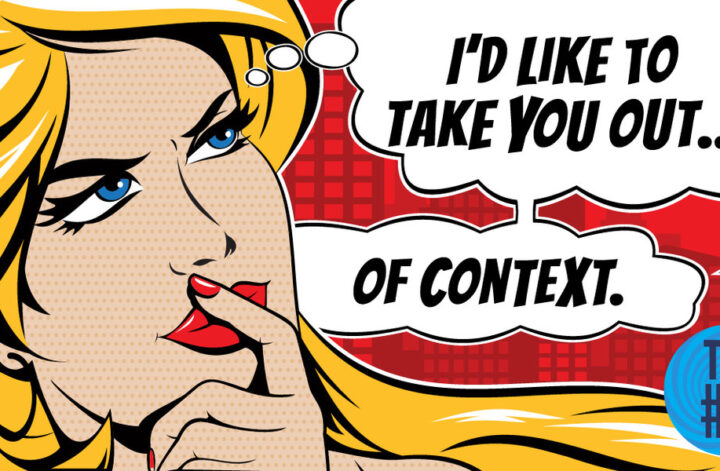The diabolical cunning of the mainstream
Competent scholars are often invited to appear on TV talk shows to provide their knowledgeable perspectives on significant issues such as recent pandemics, the Ukraine war, and the Gaza invasion. However, it is disheartening to witness that when the pundit expresses opinions contrary to the mainstream narrative, the talk show anchors frequently resort to public attacks and ridicule them.
One might wonder why these anchors invite dissenting voices in the first place and why the scholars accept participatingin such a hostile environment. The intention is unlikely to demonstrate the freedom of information and the inclusion of diverse viewpoints. Instead, it has become evident that, in the post-pandemic era, communication has evolved in a way that strategically invites a few dissenting voices to amplify the dominant narrative showcased by the talk show hosts. Ideally, the anchors prefer inviting individuals who exhibit eccentricities or can be personally attacked.
The anchors reaffirm their positions by exposing the invited dissenters’ divergent opinions. The tactic is simple: they offer more airtime and allow greater fervor to their “allies,” who can mock and ridicule dissenting viewpoints. It is difficult to believe that those who participate in talk shows from a critical standpoint are acting in bad faith. They may need to realize they are instruments of controlled information. However, unintentionally, they contribute to the manipulation of truth.
Claiming that unknown powers have systematically devised and imposed this strategy to control the masses, demandingcivil liberties and accurate information, is a challenging argument. Perhaps, as a hypothesis, a largely controlled communication network has gradually emerged, verging on totalitarianism. While a biased “conspiracy” perspective is not a suitable premise for independent analysis, a severe researcher should consider and examine every hypothesis, including the possibility of conspiratorial forces.
When discussing communication, particularly in justifying senseless wars, it is crucial to acknowledge the decline of information media. Therefore, it is essential to investigate how the pervasive and impactful limitations imposed by the pandemic have influenced citizens and transformed information techniques.
A comprehensive study requires a dynamic analysis to understand how the measures and communication strategies implemented to combat the pandemic have significantly altered the political and information systems. The power to disseminate information, from “governments to citizens,” due to the assumed state of necessity, whether accidental ordeliberately provoked, has become more invasive and sophisticated. Simultaneously, minimal effort has been made toenhance “information from citizens to governments.” Furthermore, more initiatives must be taken to expand informationsources; they have become increasingly selective. This strengthening of “top-down” information has effectively marginalized “bottom-up” information, which is the foundation of democracy, representing information flowing from citizens to governments.
Moreover, “top-down” and “bottom-up” seem outdated, reflecting a hypothetical and desired world of 20th-century information. As there are no longer clear divisions in social classes represented by parties, organizations, or recognized authorities, referring to “inside-out” information from entrenched institutions and “outside-in” information, meaning those who collectively seek to influence decisions, is more appropriate. Scholars such as John Hagel and John Seely Brownhave discussed this concept.
Searching for truth becomes elusive in an increasingly complex world where knowledge is highly specialized and fragmented. Without a foundation of truth, even the pursuit of ethics becomes a challenging task. Information flows predominantly from the inside out, emanating from the secluded ivory tower where its propagators reside, impervious to the messages attempting to penetrate its walls. It is crucial not to overlook that, without access to information, even those within the corridors of power gradually succumb to ignorance and foolishness.
Regrettably, the once solid and legitimate institutions facilitating effective citizen participation have suffered further erosion. Through the development and application of sophisticated communication techniques, information has been intentionally fragmented and distorted, granting prominence solely to those selectively chosen by those in positions of power.
During the pandemic emergency, I found it necessary to advocate for this approach. Unlike more reckless individuals, I foresaw the danger of irreversible consequences once these techniques were implemented and entrenched within theexisting structures. Alas, others who shared this understanding shamelessly exploited the situation. Dissenting opinions, seemingly tolerated in an atmosphere of freedom and open information, have been and continue to be allowed circulationsolely to reinforce prevailing narratives, often trivializing or mocking those voices that deviate from the established norm.
Returning to a transparent and unrestricted information flow would have been challenging enough. However, the ongoing conflicts in Ukraine and Palestine have made the prospect of achieving transparency and unbiased politics increasingly unattainable. Prejudices persist or, at best, are vaguely acknowledged, further hindering the restoration of a genuinely transparent and impartial information landscape. The question arises: will we be able to extricate ourselves from the whirlpool that threatens to engulf us?



